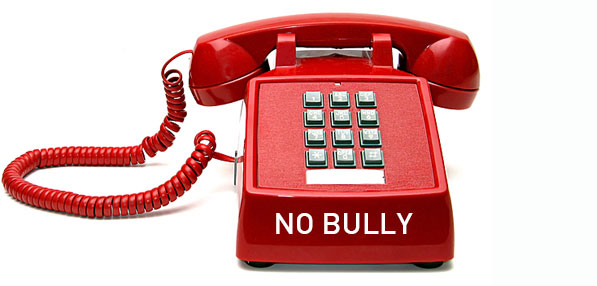New anti-bullying support model is working!
It was now four months ago on Pink Shirt day, Feb 26, 2014, that VCH introduced a new policy and supports to encourage staff and physicians to seek help and report bullying, harassment and disrespectful conduct in the workplace. Since then, we have received 222 new requests for help and half of the cases referred to HR for follow up have been resolved! I think it’s safe to say that with your help and courage, we are changing the culture at VCH and working together to take a stand against bullying and disrespectful conduct!
It’s working
The majority of complaints continue to involve insulting comments or offensive language (this includes face to face, phone, email and social media). Click here to see the latest Respectful Work Place Reporting Dashboard which includes a full breakdown of who is involved and the referral source.
Of the 222 concerns:
- Two-thirds were calls to the VCH No-Bully line;
- One-third reported to the HR Advisor through supervisors, managers and department heads;
- 60 percent of the concerns were referred to an HR Advisor for follow-up and resolution with
25 percent requiring facilitated HR Advisor interventions;
- The remainder (40 percent) requested the information only option which can include EFAP confidential debriefing and/or counselling.
These numbers show that the new support model of having multiple reporting options and supports for staff is beneficial and has increased reporting across VCH.
New supports lead to resolutions
Half of the concerns referred to an HR Advisor for follow-up have already been resolved with the remaining either under formal investigation or in the HR support phase (e.g. coaching advice or facilitating a meeting with affected parties). The feedback on the resolutions that have been achieved to date has been extremely positive; resulting in preserving working relationships which we know has positive outcomes for everyone – staff, patients and the public.
What’s next?
The no-bully initiative is one EE’s highest priorities which means we are going to continue investing in eliminating bullying and workplace incivility at VCH by offering additional education on ‘How to deal with bullying and harassment in the workplace.’ This is in addition to the unit in-services that your HR Advisors are currently facilitating – stay tuned!
More information on workplace bullying is available on the Employee Relations intranet site.


Janine G
We Hope that HR advisor will continually support the victims who are being bullied and have follow ups for unresolved issues as this behaviours are likely not going to end in one session or meeting. These behaviours of bully are part of their lifestyle, attitude that they bring in to work place and manipulate other employee/s who are vulnerable. Consistent bully like intimidation, belittling someone, gossiping etc are still existing and support from management and employer will help disperse this chronic disrecpectful behaviour from individual person.
Mary Ackenhusen, CEO
Thanks for your reminder Janice that this is often a journey with an individual’s behaviour which may not be resolved with one intervention. I personally am surprised at the number of people who reported being bullied (good for them – it takes courage and trust to do so) and I am committed to supporting those who are feeling intimated by others in the workplace. The culture that we create here at VCH must allow everyone to do their best work and part of that is ensuring that we all are respected.
Yvonne
No, the model is not working. How does VCH define “resolved”? I am being told my complaint is not a bullying complaint. It is not resolved as far as I am concerned. I feel I am being subjected to institutionalized corporate bullying, and it extends, from my point of view, from the bottom to the very top of VCH: the next person up the chain just repeats the same bureaucratic illogical inconsistencies to deny, minimize, stall, avoid, distract, obfuscate, divide, isolate, and/or blame the employee for expecting a reasonable workload that allows for an unpaid 30 minute meal break near the middle of their shift. The public thinks the high cost of health care is due to the salaries of front line workers, such as nurses. Others have argued that it is the number of managers and what they do with their time that drives up the cost of health care.
WAYNE BALSHIN
Hi Yvonne.
I would appreciate the opportunity to speak with you in order to understand and resolve your concerns. Is there a phone number I can call you at?
Regards Wayne Balshin, Director Employee Relations, 604-889-6194
Editor
In terms of blog moderation practice and maintaining anonymity, it might be best to offer a number for a commenter to call rather than request that they share their number on the blog.